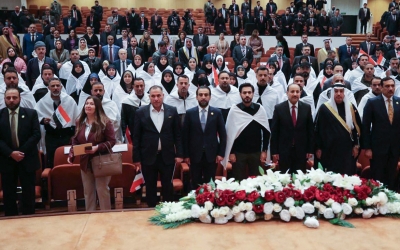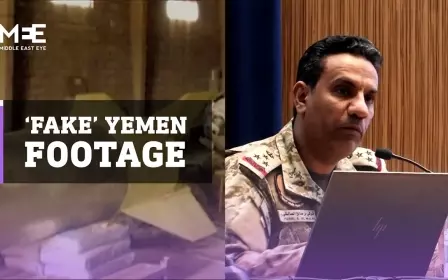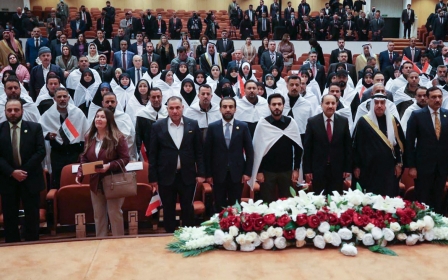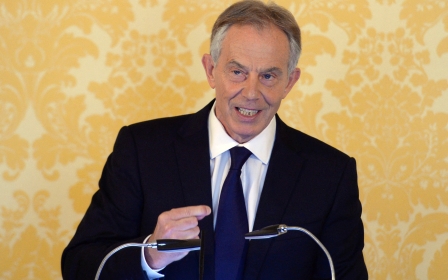Iraq: Parliament elects speaker, paving way for new government
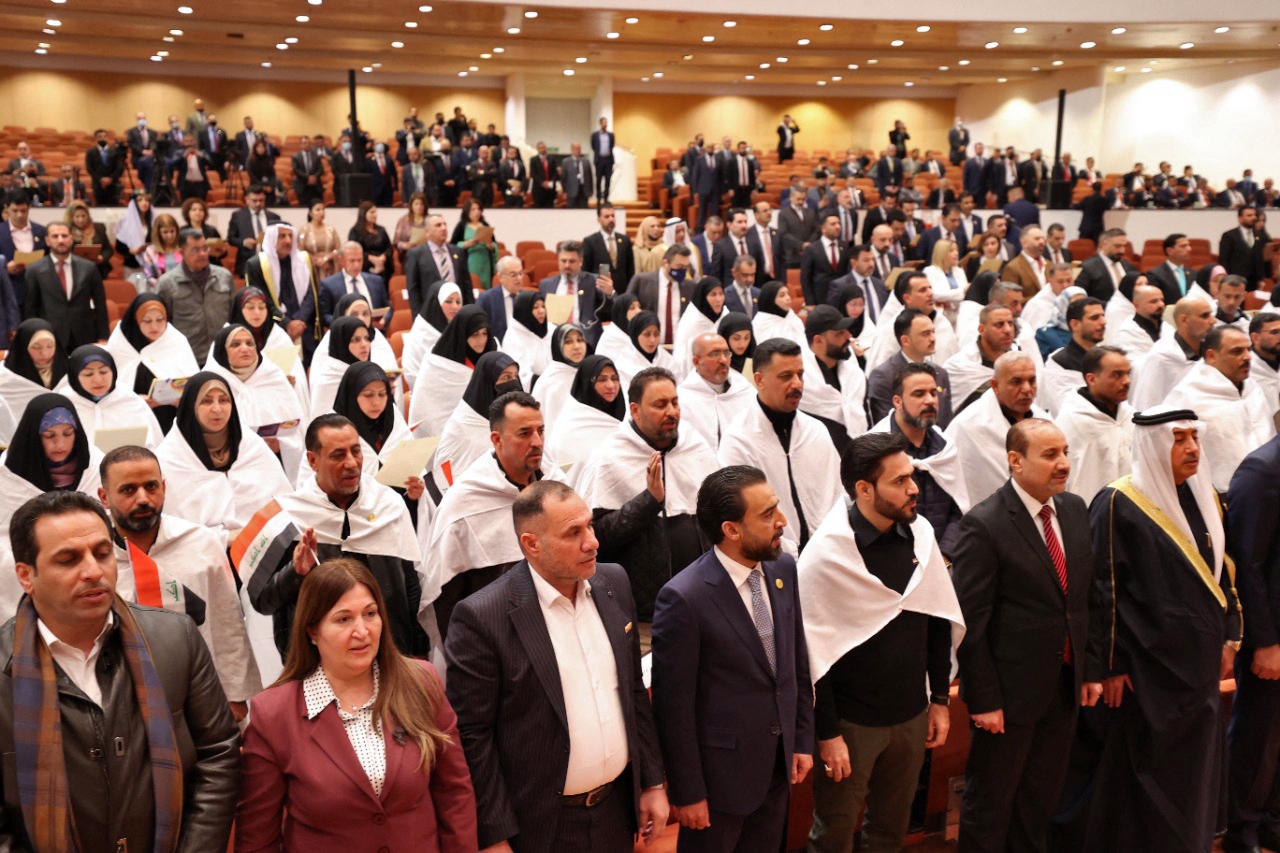
Iraq's new parliament elected Sunni lawmaker Mohammed al-Halbousi as speaker on Sunday in the first session since the 10 October elections, paving the way for the election of the country's new president and government.
The first session, in which MPs were tasked with electing a new speaker and deputy speaker, had to be adjourned for deliberation after interim speaker Mahmoud al-Mashhadani fell ill.
Mashhadani, who is the oldest member of parliament, was seen in photos being carried out of the assembly by security officials.
Sunday's session later resumed with another MP filling in for him.
Halbousi was then elected for a second term as speaker, defeating Mashhadani, a former speaker of the first parliament, in 2006. Halbousi won with 200 votes, according to a statement.
The parliament's press office said Mashhadani was discharged from hospital after a couple of hours.
The session witnessed heated arguments over which party had the largest number of seats.
Iran-backed Shia political coalition Fatah and the State of Law coalition, which is led by former prime minister Nouri al-Maliki, submitted a document to the acting speaker requesting that their coalition be the largest bloc in parliament.
Lawmakers from Shia cleric Muqtada al-Sadr's party, which came first in the October election, strongly objected to the request, defending their position as the largest bloc.
“The debate between Shi’ite parties over which bloc is the largest in parliament has disrupted the session and forced a brief delay,” said Jamal Kojar, a Kurdish lawmaker.
Sadr is a populist who has positioned himself as a staunch opponent of both Iran and the United States. His bloc, already the biggest in parliament before the October election, will expand to 73 seats from 54. Its main rival for years, the Fatah bloc of factions linked to pro-Tehran militia, saw its parliamentary representation collapse in the election to just 17 seats from 48.
However, some lawmakers could yet switch factions and parliament's presidency will ultimately decide which is the biggest faction.
Hakim al-Zamili, who ran for Sadr’s party, was elected as Halbousi’s first deputy speaker. Shakhwan Abdulla from the Kurdistan Democratic Party (KDP), was voted second deputy.
Iran-backed Shia Muslim parties rejected the elections of the parliament speaker and deputies on Sunday, pledging to resort to the supreme court to contest the legality of the appointments.
"What happened today inside the parliament is illegal and will have dire consequences on the state level," said Fatah lawmaker Humam al-Tamimi.
October 'revolution'
Politicians hailing from the Tishreen movement entered the parliament for the first time on Sunday and could be heard chanting "long live the Tishreen revolution" after taking their oaths.
They took their seats alongside more established political parties for the first time since the October 2021 elections, which were widely boycotted, and handed the political movement of cleric Muqtada al-Sadr the largest number of deputies.
The October vote was the fifth national parliamentary election to be held in Iraq since the 2003 overthrow of Saddam Hussein in a US-led invasion.
The date was brought forward to calm the widespread anti-government demonstrations that swept Baghdad and nine southern governorates in October 2019, when hundreds of demonstrators were killed and dozens of activists and journalists were kidnapped and arrested.
Tishreen, which means October in Arabic, is the name that was given to the protest movement embraced by many young Iraqis, especially in the south.
Supporters of political movements aligned to Iran-backed groups had contested the results of the elections through the courts after they saw their share of the seats collapse, alleging fraud.
However, last month the Federal Supreme Court rejected their appeal and ratified the election results.
Following the election of a speaker - by tradition a Sunni Arab - parliament will then have 30 days to choose a president, who is traditionally a Kurd.
The president will then be tasked with selecting a prime minister, traditionally from the majority Shia Arab community, from the largest parliamentary bloc within 15 days.
The system, which was crafted after the US overthrow of Saddam Hussein in 2003, is widely resented across Iraq and was a major target of the anti-government Tishreen protests in October 2019.
Critics say the sectarian-based quota system - referred to as Muhasasa - has entrenched ethnic and religious divisions across Iraq and has allowed for massive, widespread levels of corruption across the state.
Viewing the system as unreformable, many Tishreen activists boycotted the October 2021 elections, but some decided to participate under a range of political banners - the Imtidad party, founded by Tishreen figurehead Alaa al-Rikabi, was the most successful, winning nine seats.
On Sunday, Imtidad representatives travelled to the assembly on tuk-tuks, the vehicles that became major symbols of the anti-government protests as they ferried activists (including wounded ones) to and from the demonstrations.
Other supporters carried pictures of activists killed during and since the protests.
Hundreds of people have died in the more than two years since the Tishreen protests began, either from the weapons of security forces or through assassination by armed groups.
Middle East Eye propose une couverture et une analyse indépendantes et incomparables du Moyen-Orient, de l’Afrique du Nord et d’autres régions du monde. Pour en savoir plus sur la reprise de ce contenu et les frais qui s’appliquent, veuillez remplir ce formulaire [en anglais]. Pour en savoir plus sur MEE, cliquez ici [en anglais].


